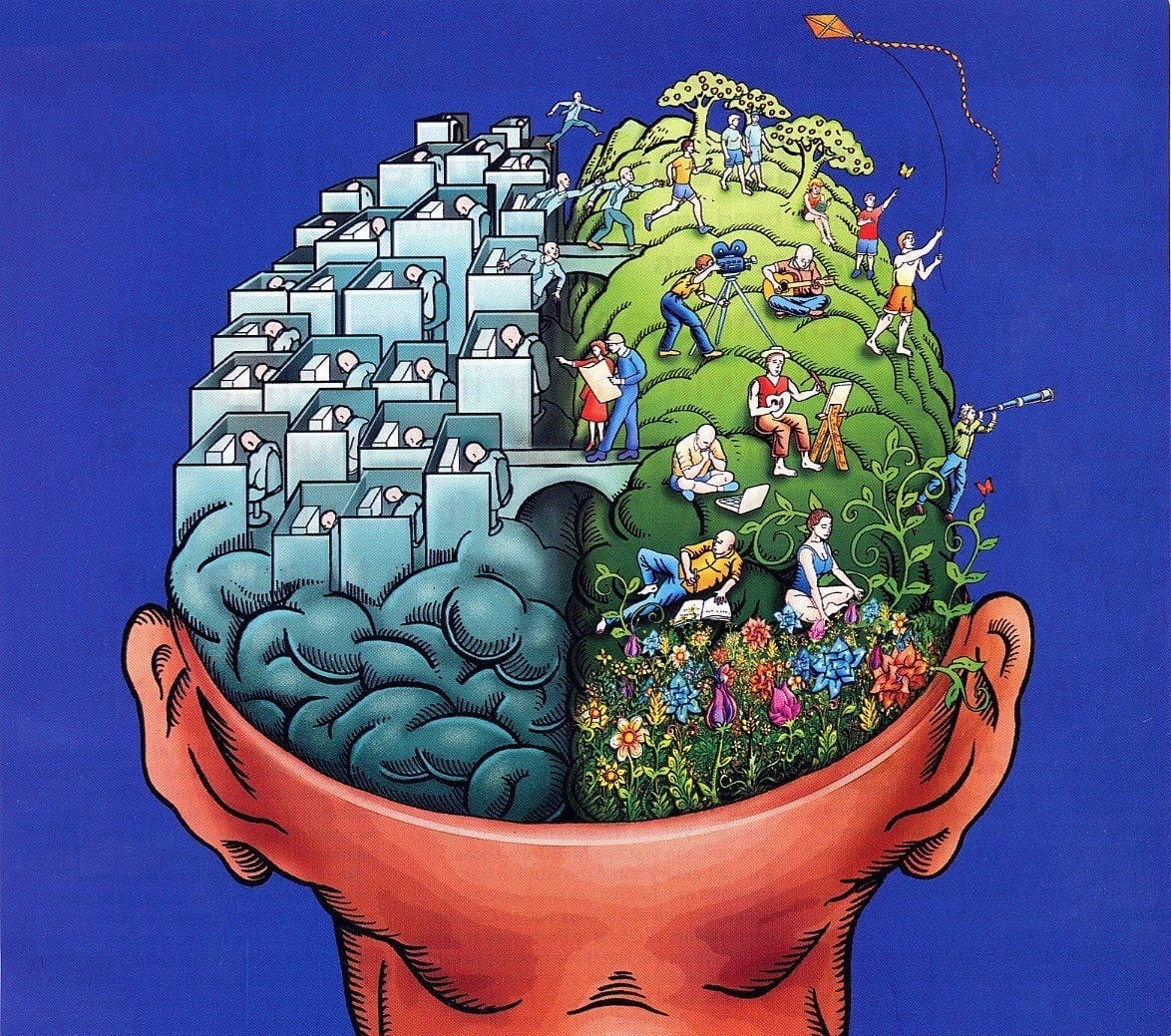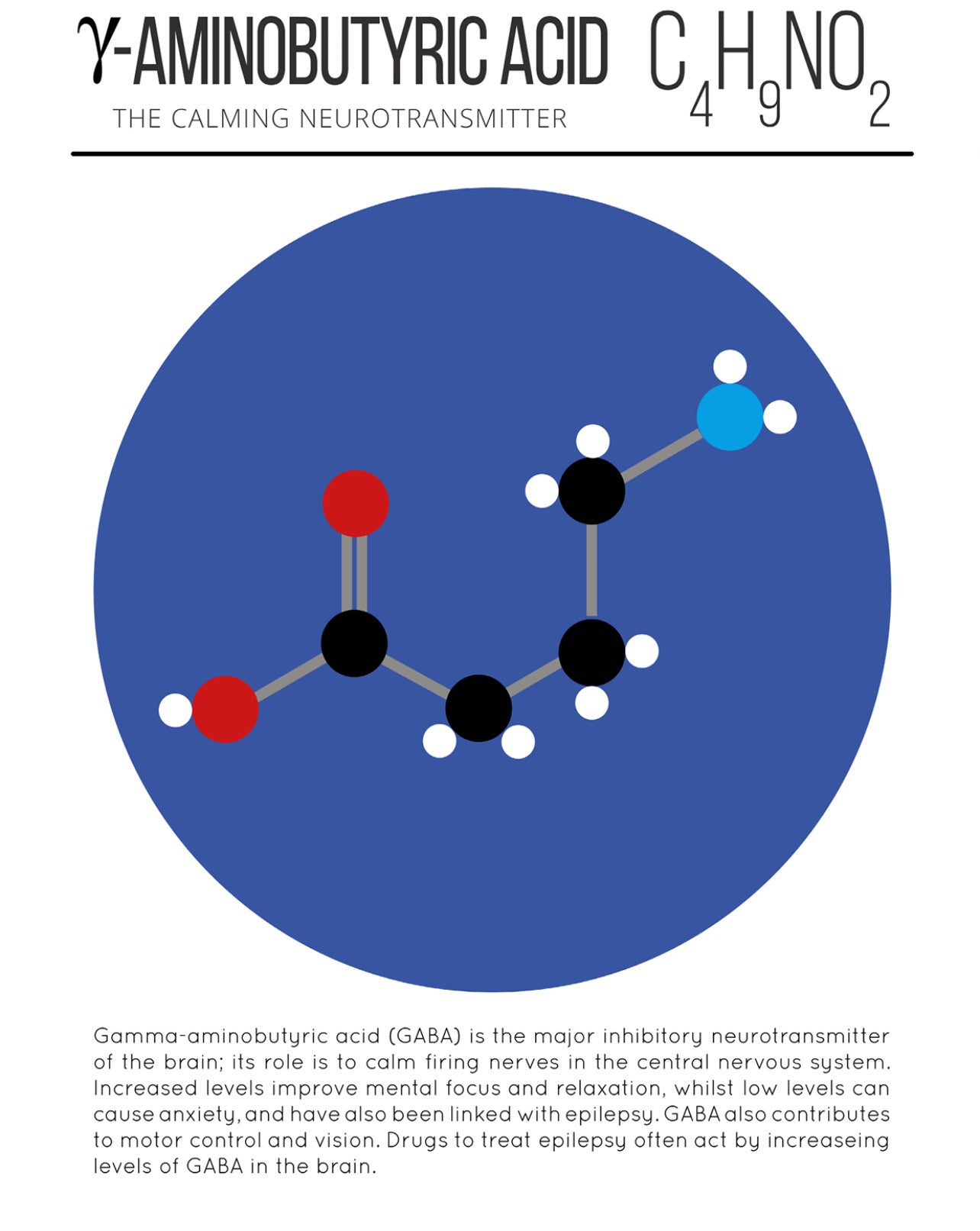
Are You an Overthinker? And 3 Ways You Can Stop
Are you an overthinker? Are you fed up with feeling stuck constantly thinking about the same event? You just can’t seem to move on or stop thinking about it. The worry has turned into rumination full of negative self-talk, criticism and doubt.
It causes millions of people immeasurable stress and anxiety.
From an evolutionary standpoint, it is a fantastic survival strategy whereby, constant thinking leads to problem-solving.
However, it becomes a dysfunctional, toxic pattern when the loop gets stuck and you feel like you are going round in circles. You are not making any progress and your psychological and physical energy is being constantly drained away.
A 2013 study explains that overthinking and rumination are a well-established risk factors for the onset of major depression and anxiety.
“Our ability to control our thoughts is fundamental to our well-being,” said Michael Anderson, Professor at the University of Cambridge.

What is overthinking?
The classic overthinking definition is, “to think about something too much or for too long.”
Ruminators tend to get stuck in the analysis phase of a problem. They struggle to shift their focus from rehashing the event getting stuck in the emotion to let go of the outcomes. Their values have been ignored, they have been shamed in front of others, they have been treated unfairly and feel that they have no voice.
Is this you?
Fear, shame, anger, loss, injustice, embarrassment and feeling ignored are very typical emotions that trigger excessive worrying.
Some major signs that you’re overthinking include:
- trouble focusing
- racing thoughts (and you can’t to slow them down)
- can’t switch off your mind
- fixating on a particular situation or event
- sleepless nights when your brain just won’t turn off
-
turning every situation into a catastrophe
While it’s human nature to think things through when making a decision or evaluating a situation, it becomes overthinking when you can’t get out of your own head.
It happens to all of us at some point in our lives – we all experience events that cause us worry or stress.
Some people can’t seem to turn their concerns off. They worry about the future, making catastrophic predictions about unlikely events that haven’t happened yet.
They also ruminate about the past, beating themselves up about “should haves” and “could haves.”
They fret over what others might think of them or let negative self-talk build up in their minds.
Overthinking a tough decision you have to make can also cause problems. Replaying all the options in your head can lead to “paralysis by analysis” – you’re afraid to take the wrong action, so you take no action at all.
Whether you’re a chronic overthinker or need to make a tough decision, you’ve probably experienced sleepless nights when your brain just won’t turn off.
Is overthinking part of depression?
Overthinking can increase symptoms of depression, elevate your stress levels and cloud your judgment.
Why do I overthink so much?
Negative and destructive thought patterns come in many forms – and some are worse than others. These thought patterns tend to surface during times of social stress and conflict and contribute to the negative effects of overthinking. Two of the most common patterns are ruminating and incessant worrying.
Ruminating means there is a single thought or several connected thoughts that are sad or dark, and that run through your mind over and over again. Rumination is common in perfectionists, and can contribute to depression and pushing others away. With incessant worrying, you constantly anticipate and worry about almost anything in your life going wrong. Incessant worrying doesn’t seem to be related to a specific event in your life, but it is deeply related to your limiting beliefs and your story.
- You have had chronic or acute levels of stress
- You have experienced social rejection activating brain regions that are centrally involved in self-reflection and emotion regulation
- It can be a symptom of anxiety or depression
- Your brain biochemistry may be out of balance
- You may be lacking certain nutrients
- It can be a symptom of PTSD
- Your nervous system might be stuck on high alert after a stressful event
- You might have a tough life decision to make
- You might have had your attachment pattern triggered
- Your boundaries have been ignored
- There is a discrepancy between your goals and your reality
- You are stuck in a negative thinking pattern
Why do I need to stop overthinking?
Overthinking is different: it isn’t rational, and it isn’t part of a larger strategy. In fact, it can actually interfere with your problem-solving abilities.
Overthinking may also cause excessive activity in your brain that can be harmful to you. One Harvard study found that this excessive brain activity depletes an essential protein – and that may actually shorten the human lifespan.
There can also be major psychological consequences. Instead of coping, rumination might actually be increasing symptoms of depression and anxiety. When rumination was introduced to distressed patients in a study, it was found to prolong anxiety and depressive symptoms rather than resolve them.
In reality, overthinking gives you a false sense of control. Rather than dealing with the situation directly, overthinking acts as a passive distraction.
Your brain thinks all this worrying is preparation for your defence misdirecting all your energy.
Another study found that “rumination,” a form of overthinking, can lead to anxiety, binge drinking or eating, depression and self-harm.
Finding ways to stop your overthinking is good for both your body and your mind.

How to overcome rumination and overthinking
If you have been wondering if you’ll ever be able to scrub unwanted thoughts from your memory, science says you actually might — if your hippocampus is well-stocked with a particular neurotransmitter, called gamma-Aminobutyric acid, or GABA.
Scientists have identified a key chemical within the memory region of the brain that allows us to suppress unwanted thoughts.
The findings showed that the ability to inhibit unwanted thoughts relies on a neurotransmitter - a chemical within the brain that allows messages to pass between nerve cells - known as GABA.
“Strikingly, we found that the more GABA our participants had in the hippocampus, the better they were at controlling their thoughts,” Anderson says. “In contrast, the ability to stop an action, instead of a thought, did not rely on hippocampal GABA.”
Most of us take for granted our ability to control our thoughts, but if you think about it, this basic ability is fundamental to our wellbeing.
This becomes very clear when this capacity breaks down causing some of the most debilitating symptoms: overthinking, intrusive memories, images, hallucinations, ruminations, and pathological worries.
Stress depletes levels of GABA in your brain. The results show that people suffering from disorders such as anxiety, post-traumatic stress disorder (PTSD), depression often experience persistent intrusive thoughts due to low GABA levels in their hippocampus..
Scientists are increasingly studying the brain not from a “regions” or “area” perspective, but from a “network” perspective, and there’s one network in particular that overthinking patterns are related to– the default mode network (DMN).
The DMN lights up in brain scanners when scientists tell their subjects not to do anything in particular.
I think of it an automatic mental program that runs when there’s nothing more important going on.
It’s designed to force you to think about your place within the world; to make sense of all things related to ‘me’, ‘myself’ and ‘I.’ Being pre-programmed to spend your downtime processing and re-processing social information is vital for you to work well together in social groups.

But it’s notorious for hijacking your inner thoughts too.
The battle of brain chemicals
Our star players are GABA, dopamine, acetylcholine, serotonin and cortisol.
Dopamine — the motivator, prevents social anxiety and gives energy and rewards for our actions.
GABA —the calming influence, helping your nervous system rest, restore and balance
Serotonin — the good mood, confidence regulator.
Cortisol — the fear trigger, your fight, flight, freeze, fawn response
Your dopamine encourages the idea of problem-solving, hence starts the loop in hopes to reward the brain. Cortisol is fired as means of energy, you get wired when you're trying to solve the problem. Serotonin regulates your thought loop when new possibilities are anticipated. GABA keeps the balance helping to control and calm your thoughts.
But if your neurotransmitters and chemicals are out of balance it becomes a loop of no results. Your serotonin levels go down further and cortisol is released. This creates stress and unhealthy forms of rumination.

The solution
How to be happy without anti-depressants:
Boost your GABA levels.
Read: How does GABA regulate anxiety?
3 ways you can stop overthinking by boosting your GABA:
1 Take these supplements to boost your levels:
Glutamine
Methylated Vitamin B6
Theanine
Magnesium
Probiotics

L-Theanine
L-theanine is found in tea - especially green tea - and it promotes relaxation and facilitates sleep by contributing to a number of changes in the brain:
- Boosts levels of GABA, serotonin and dopamine
- Promotes sleep
- Reduces stress chemicals to help with stress and anxiety
- Enhances alpha brain waves
L-theanine triggers the production of alpha-waves, which enhance relaxation, focus, and creativity.
Alpha brain waves are associated with a state of “wakeful relaxation.” That’s the state of mind you experience when meditating, being creative, letting your mind wander in daydreaming or during REM sleep.
Making green tea your drink of choice is a great way to boost your theanine levels.
Magnesium
Magnesium has been shown to modulate GABA activity in the brain. It does this by facilitating GABA neurotransmission and boosting its effects of relaxation.
Magnesium also helps to relax the central nervous system and your muscles. It does this by helping to activate the parasympathetic nervous system – that is responsible for helping us to rest and digest and reducing cortisol levels.
We can find magnesium in foods such as avocado, nuts and seeds, legumes and some whole grains. Studies have shown that supplementing with magnesium can be very effective in reducing symptoms of anxiety.

Vitamin B6
GABA is produced via the activity of an enzyme called glutamic acid and GABA, which requires vitamin B6 as a cofactor.
Studies show that the B6 levels of an individual have significant effects on the central production of both GABA and serotonin neurotransmitters that prevent symptoms of depression and anxiety.
B6 can be found in all animal products, as well as grains, pulses, eggs and dairy.
Probiotics
Gut bacteria including the Bifidobacteria family and by the Lactobacilli family have been shown to produce GABA.
This further strengthens the increasing evidence for the gut-brain connection and that having a healthy microbiome in your gut is a crucial pillar in brain health.
And
What is L-Glutamine?
It is known as the ‘calming amino acid’ for its effectiveness in reducing stress-related anxiety symptoms.
It’s Yoga for the brain.

Chronic stress uses up glutamine leading to high levels of stress and anxiety and our immune system and gut being vulnerable.
Supplementing with glutamine is an excellent way to ensure your body can make enough GABA to reduce the effects of stress and anxiety.
Have a look at this supplement which has all the GABA producing ingredients, including loads of glutamine, in one easy place:
Calm Me

2 Mindfulness and meditation
There are two sets of networks in the brain that control experience.
The default network is involved in planning, daydreaming, and ruminating.
The direct experience network is active when you aren’t thinking about the past or future. It is the definition of living in the present when you feel the grass under your feet or cold water on your skin in the shower.
You cannot have both networks active at the highest intensity simulatneously.
The solution
Mindfulness, meditation and yoga are great at boosting GABA and in combating overthinking.

The form of mindfulness you choose to practice is up to you but if you can start to notice your looping thoughts and choosing to instead focus on where you are or what you’re doing at the current moment.
Try these exercises:
5 - 4 - 3 - 2- 1
Square Breathing
3 Manage Your Story
We are all telling ourselves stories. The question is, does your story empower you or hold you back?” The stories we tell ourselves about who we are impact every aspect of our lives. Overthinkers may tell themselves, “I’ve always been a worrier” or “I’m just naturally more anxious than everyone else.” These are stories that hold you back and can be especially hard to change if you’ve never asked yourself “Why do I overthink?”
To overcome your limiting beliefs, you need to first identify them. Then you can catch yourself when you start telling yourself these negative stories and replace them with positive ones, like “I am in charge of my emotions.” Once you change your story, you’ll change your life.
The best way to do this is to start journaling. A stream of free conscious writing. simply write down, by hand, everything in your head. Try it for 5 minutes a day.
You’ve tried steps all the steps above and you still can’t stop overthinking. That’s OK! You just don’t have all the tools you need.
A therapist may be your best bet to develop the practices. When a negative thought pops up, you’ll have what you need to stop yourself from purchasing an unlimited pass to the ferris wheel of overthinking.
For more psychological tools and techniques to help you finally get the insights to the underlying emotion reasons for your overthinking sign up to my newsletter:
From The Psychologist's Chair
Let's sort it out together.
Your thoughts are powerful. Get stuck in a loop of doom and it will impact your mood in a major way. Overthinking doesn’t give you the control you think it does. But, that doesn’t mean you can’t take back the reins of your thoughts.
Focus on action, speak kindly to yourself, and don’t be afraid to get help to build your overthinking toolkit.
Take care of yourself,
Evelyn
x
References:
https://www.nature.com/articles/s41467-017-00956-z
https://www.sciencedirect.com/science/article/abs/pii/S1550830713000487?via%3Dihub
https://www.ncbi.nlm.nih.gov/pmc/articles/PMC4303399/



Leave a comment
This site is protected by hCaptcha and the hCaptcha Privacy Policy and Terms of Service apply.